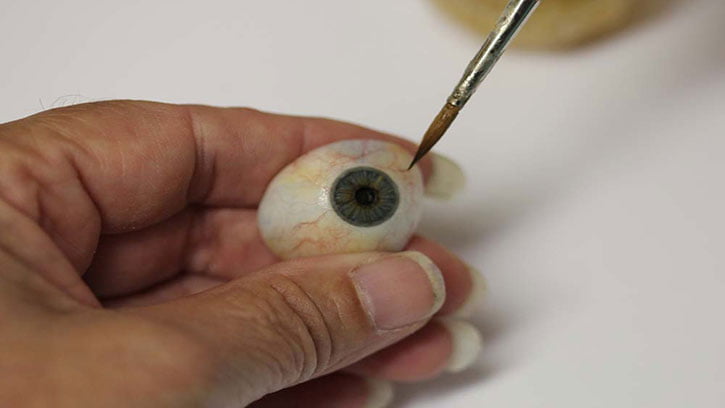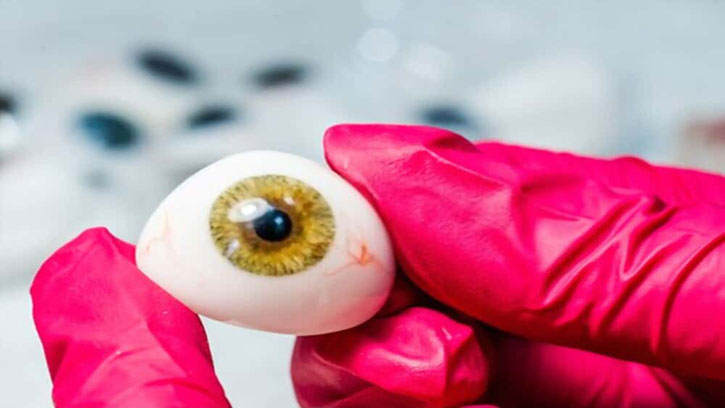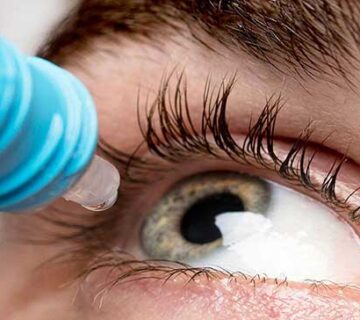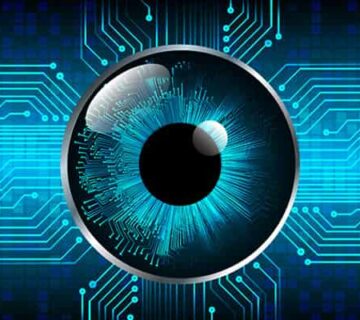The Benefits of Using an Artificial Eye: An Important Topic for Those Considering Ocular Prosthetics. Sometimes, the human eye may be damaged due to disease or an unfortunate accident. Occasionally, the damage is severe enough that the eye must be removed (enucleated) for the person’s health. In such cases, ocular prosthetics can be used to preserve appearance. This article explains the benefits of using an artificial eye.
What is an eye prosthetics or Artificial Eye?
As mentioned earlier, an accident or disease may necessitate the removal of a patient’s eye. In such situations, an artificial eye is used to improve the person’s appearance. Artificial eyes, or ocular prosthetics, come in various types. Based on the extent of the damage, the ophthalmologist selects a suitable type for the patient.
After selecting the appropriate type of prosthesis, an ocularist (artificial eye maker) measures the healthy eye and creates an artificial eye similar to it for the patient. This eye will be indistinguishable from the healthy eye in terms of size, eye color, sclera color, and even blood vessels.
Modern prostheses are predominantly made of medical-grade acrylic. This material is lightweight and has minimal weight, making it highly suitable for this purpose. Acrylic also offers higher transparency than other materials. Consequently, an eye made from this material bears a very high resemblance to a healthy eye.
Although using ocular prosthetics cannot restore a person’s vision, the benefits of using an artificial eye are so significant that they cannot be overlooked.
Benefits of Using an Artificial Eye
Using an artificial eye is highly important for individuals who have lost an eye. Some of the benefits are outlined below.
1. Improved Facial and Bodily Function is a Key Benefit
If, after an accident and eye removal surgery, the empty space in the person’s eye socket is not promptly filled with a suitable ocular prosthesis, it can lead to problems such as infection of the orbital tissues, involuntary eyelid closure, and drooping eyelids (ptosis). Any of these issues can cause facial deformities.
Timely use of an artificial eye helps minimize these problems and preserves the natural function of the person’s face and body. Therefore, after eye removal, it is essential to promptly have an eye prosthetics made by a skilled ocularist to fill the empty space and prevent subsequent complications.
Timely intervention allows the body to sense that the original eye is still present and accept it as a part. Using an ocular prosthesis ensures the eyelid functions correctly without impaired movement. This approach also enables the other anatomical structures in the eye area to continue functioning fully and flawlessly.

2. Improved Appearance and Enhanced Self-Confidence is Another Benefit
Since the eye significantly impacts a person’s appearance, losing it causes considerable psychological distress, leading to reduced self-confidence. A person who has lost an eye may feel society may no longer accept them and that they cannot play an important social role. Therefore, increased confidence and self-esteem can be considered one of the most crucial and fundamental benefits of using an artificial eye for these individuals.
By using an artificial eye, people no longer need to worry about participating in society. Due to technological advancements in making these prostheses, distinguishing a healthy eye from an artificial one is virtually impossible for others. They can thus engage socially without any anxiety about this matter.
Conclusion
For optimal results, it is essential that individuals considering ocular prosthetics proceed as quickly as possible. Using ocular prosthetics offers numerous benefits, and users enjoy higher self-confidence. Furthermore, employing an artificial eye positively impacts better facial and eyelid function.
Mahan Artificial Eye Specialist Clinic, as the country’s pioneering scientific center in this field, boasts experienced staff and a comprehensive range of artificial eye types. You can visit our center at the address provided in the “Contact Us” section, or reach our specialists by calling 00982166889076 or 0098 912 835 7509.




No comment